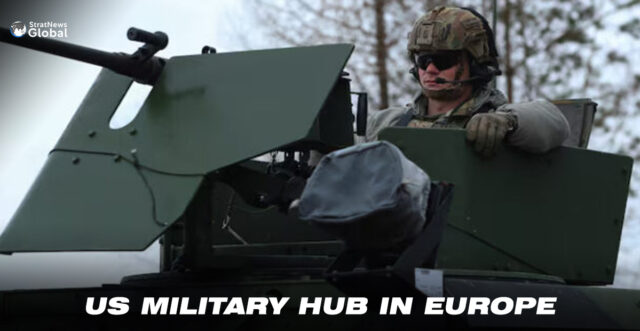Poland is likely to be the last European nation to see a reduction in US troops, said its top defence official, as Washington considers cutting back its military presence across the continent.
The prospect of a US troop drawdown in Europe has been a recurring topic since the start of Donald Trump’s presidency, when Washington began pressing allies to shoulder more of the defence burden.
Deterrent Against Russia
“All the conversations we have with the Americans indicate that Poland is the last country from which the Americans would want to withdraw (its troops),” Deputy Defence Minister Pawel Zalewski told Reuters in an interview on Thursday.
Zalewski said there is a strategic rationale for the presence of American troops in Poland, on NATO’s eastern flank, to serve as a deterrent against Russia after Moscow’s invasion of Ukraine in February 2022.
Hub Of US Presence In Europe
Zalewski said Poland is seeking to be the hub of the US presence in Europe, potentially serving as a logistics, service or even production centre for the US defence industry.
“We are talking about the upgrade of F-16 aircraft or a service centre for all types of American combat vehicles, including Abrams tanks,” he said.
While Germany played such a role during the Cold War, he said it was logical for countries closer to the conflict in Ukraine to be the base for US and allied military operations.
Key Player
Poland has ramped up defence spending and accelerated efforts to modernise its military, becoming NATO’s top spender on defence in terms of the proportion of its national wealth.
As the largest buyer of US weapons in Europe, according to the Polish defence ministry, the country is positioning itself as a key player in the face of an assertive Russia.
The arsenal includes Abrams tanks, HIMARS rocket systems, and air defence assets like the Patriot missile system, modern F-16 and F-35 fighter jets and Apache helicopters.
As a leading voice calling for members of NATO to spend more on defence, Poland, which borders Ukraine, Russia and Belarus, has allocated 4.7% of gross domestic product to boosting its armed forces in 2025 with a pledge to increase to 5% in 2026.
(With inputs from Reuters)





